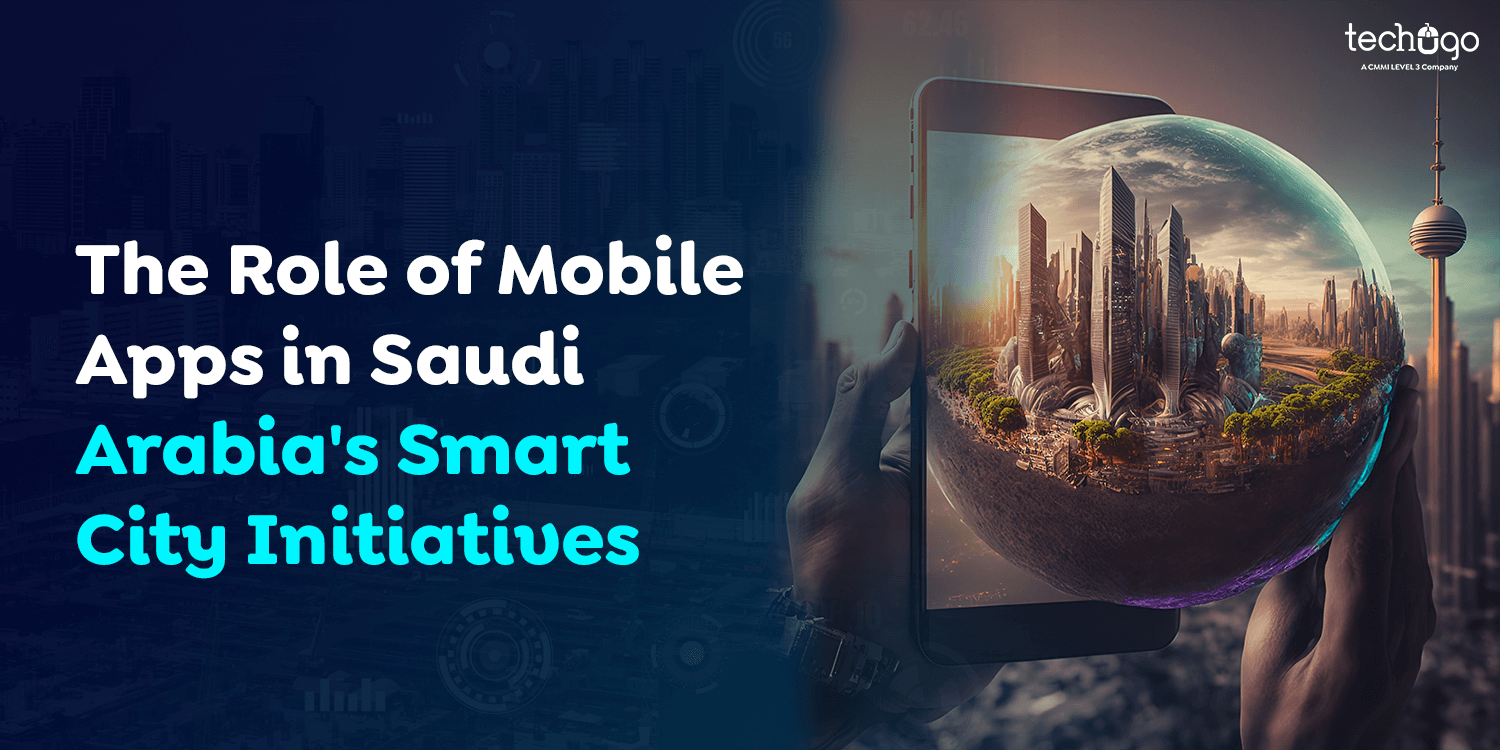Cities worldwide are changing, and Saudi Arabia is topping the “change” category! The idea of “smart cities” is catching up very fast as urban centres are heavily employing technology to bring about efficiency, sustainability, and better quality of life for citizens. Supplemented by the ambitious Vision 2030 plan, the kingdom is in active pursuit of smart cities, focused on diversification of the Saudi economy and gaining grounds for setting up digital transformation. Citizens’ engagement too, is one of the most imperative elements in any initiative on smart cities.
An important part of this aspect is the role and functionality of mobile apps. The powerful tools being put directly into the hands of citizens make tasks easier for them to engage in with the city services, report problems, and be part of decision-making. It builds a sense of ownership in the community and ensures that smart city solutions are responsive to citizen needs. Besides, mobile apps serve as the core centricity for service delivery within smart city initiatives. From the simple mechanisation of public transport to utilities and waste management, such apps facilitate easy access to services for the residents. This delivers an enhanced user experience while providing, in bulk, lots of useful data to city authorities for further optimization of services and resource allocation.
Also Read – Forging an App Like Haraj: Insights into Mobile App Development in Saudi Arabia and Beyond
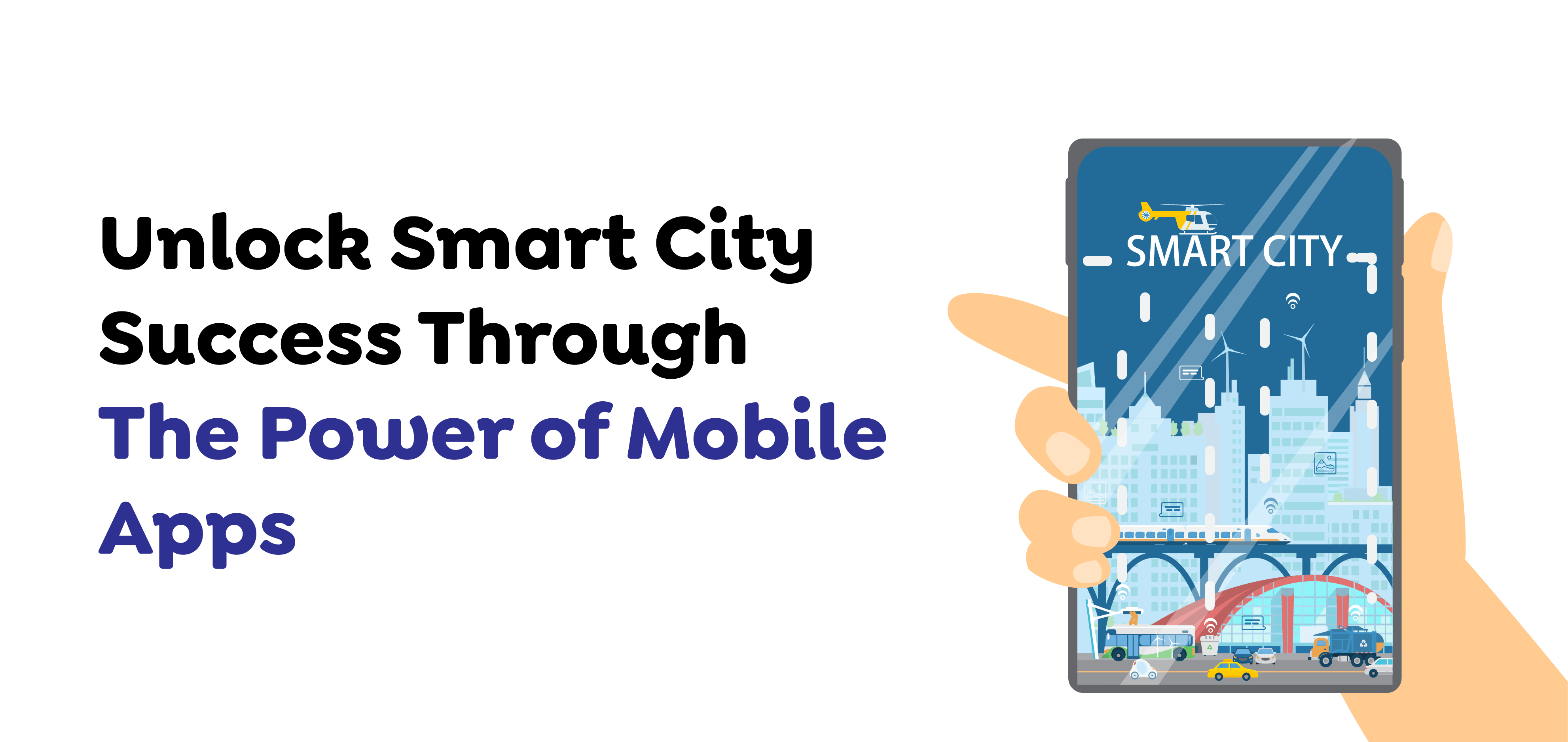
The next sections will discuss in detail how mobile apps are really marching down the corridor of Saudi Arabia’s smart city agenda in a way that has been involved with citizens, improving services, and finally making urban environments more livable and sustainable.
Saudi Arabia’s Smart City Vision to Build a Tech-Driven Future
Saudi Arabia’s Vision 2030 serves to diversify more toward other sectors and to transform the kingdom. Smart cities and urban centres, where technology would create sustainability, efficiency, and a livable future, form one of the ingredients within. Such projects certainly pose interesting opportunities for a leading mobile app development company in Saudi Arabia leveraging the latest technologies at the forefront. Let us look at some of the key smart city projects:
- NEOM City, Saudi Arabia: This bold vision will make it a global innovation hub powered by renewable energy in its own right. NEOM, the AI-enabled Megacity of Saudi Arabia is taking the smart cluster to a different level by engaging the latest technologies such as autonomous vehicles, smart grids, and the Internet of Things to offer a seamlessly connected environment. Think of hailing a self-driving taxi via a mobile app developed by a cutting-edge on-demand app development company or your home adjusting the thermostat based on real-time data on its energy consumption.
- The Red Sea Project: This luxury tourism destination will become a hub of sustainable development with advanced waste management systems and eco-friendly transport. Just imagine high-speed electric trams gliding noiselessly across the landscape or waste disposal systems which automatically sort and recycle materials.
- Qiddiya: This will be an entertainment and sports city that will feature in the league of smart infrastructure, customised experiences, and care for a healthy life. Imagine a type of individual fitness app wherein all activities are recorded across expansive parks and athletic facilities within the city. Or a mobile ticketing system that facilitates smooth movement between sporting events and entertainment spots.
- King Abdullah Financial District: This business district has already begun implementing smart solutions in the areas of traffic management, waste reduction, and mastering energy efficiency. KAFD uses real-time traffic data to optimise the flow of traffic and smart sensors monitor energy use in buildings to allow adjustments to ensure efficiency.
Also Read – The Evolving Realm of Mobile App Development in Saudi Arabia, Riyadh, and the UAE
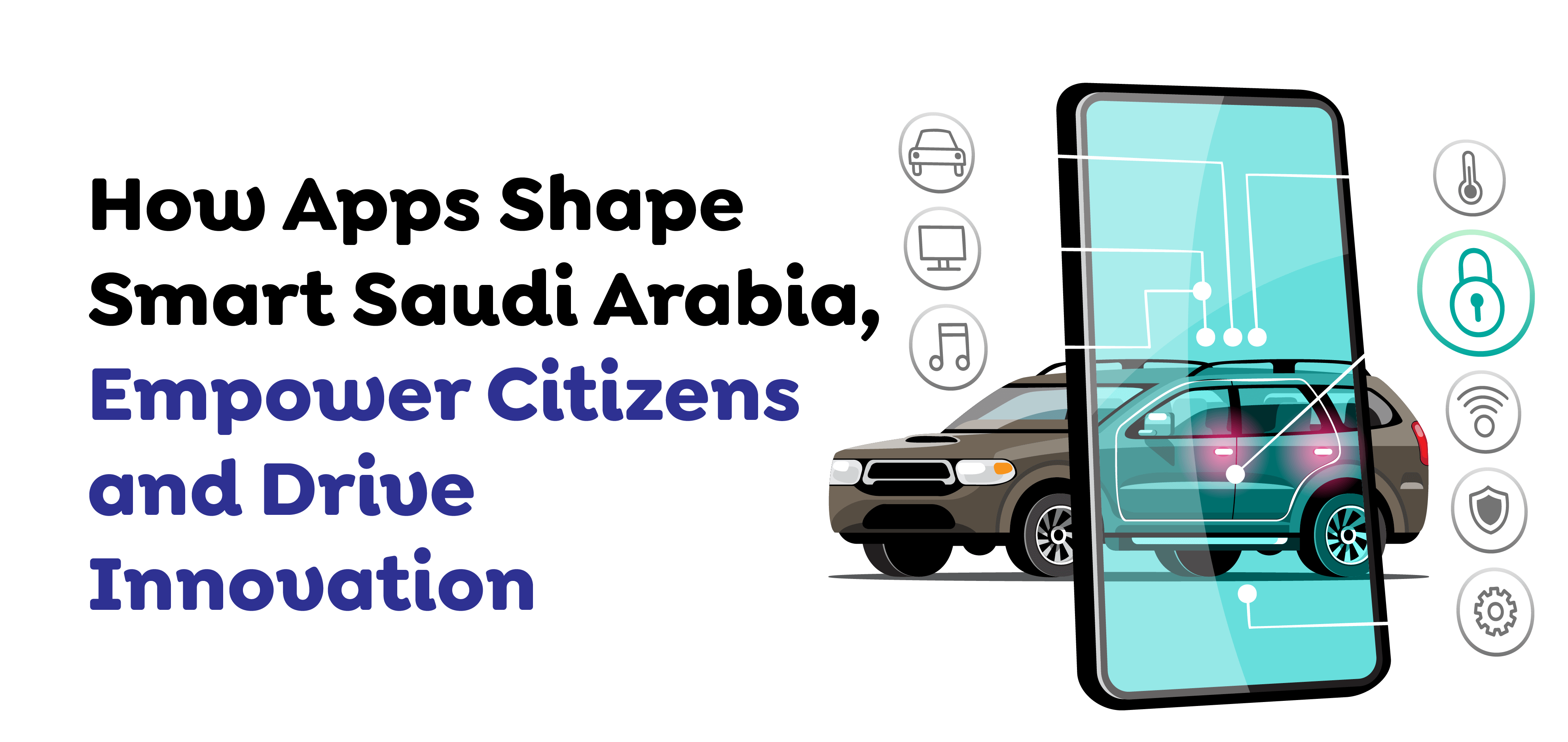
Technology at the Core
These projects use a range of technologies to achieve such ambitious goals:
- Infrastructure: This includes infrastructural smart sensors building into buildings and transportation networks, observing and optimising energy use to produce a more efficient and sustainable urban environment.
- Transport: Autonomous vehicles, intelligent transportation management systems and advanced public transport options such as high-speed rail ease congestion and lower associated emissions. Imagine no more congestion but an interwoven web of autonomous vehicles and highly efficient public transit systems.
- Sustainability: It inculcates renewable energy sources through solar panels and wind power, through its integration with smart grids, making the energy infrastructure more sustainable. Efficient waste management systems also minimise environmental impacts.
- Citizen Services: Mobile apps, developed by a professional travel app development company, can make government services much more accessible to any resident looking to report issues and connect with their communities right from their palms. Picture this, you report a pothole or streetlight outage on your smartphone and in real time it gets fixed.
Mobile Apps are the Powerhouse of Smart Cities
In the era of smart cities, mobile apps serve as the powerhouse for citizen engagement and service delivery. These ubiquitous parts act as the interface between residents and the complex network of technologies constituting a smart city. It is through the power of smartphones that mobile apps bridge the gap between citizens and city administrations to build a more efficient, interactive, and livable urban environment.
The Interface Between Citizen and City
Imagine a resident who needs to report that a street light has gone out. Traditionally, this would have been done by calling or visiting a local office. In a smart city, though, there is a mobile app dedicated to it. The resident will pinpoint the location of the streetlight on the in-app map and send a report along with a picture. It then sends your report to the proper city department so that it may effectively act on the problem. This situation is an example of how mobile apps act as a two-way channel between:
- Citizens can:
- Access live information on public services, traffic, or other events.
- Report issues regarding infrastructure, cleanliness, and safety.
- Respond to city initiatives and participate in decision-making.
- Access to payment gateways for services, such as utility bills and public transport passes.
- City governments can:
- Share important notices during emergencies or disruptions
- Collect valuable data regarding citizens’ needs and preferences to enhance service delivery.
- Engage citizens and instil a sense of ownership in them for the community.
Also Read – Saudi Arabia Ranks Top in Government Strategy for AI | What AI App Development Holds for the Future?
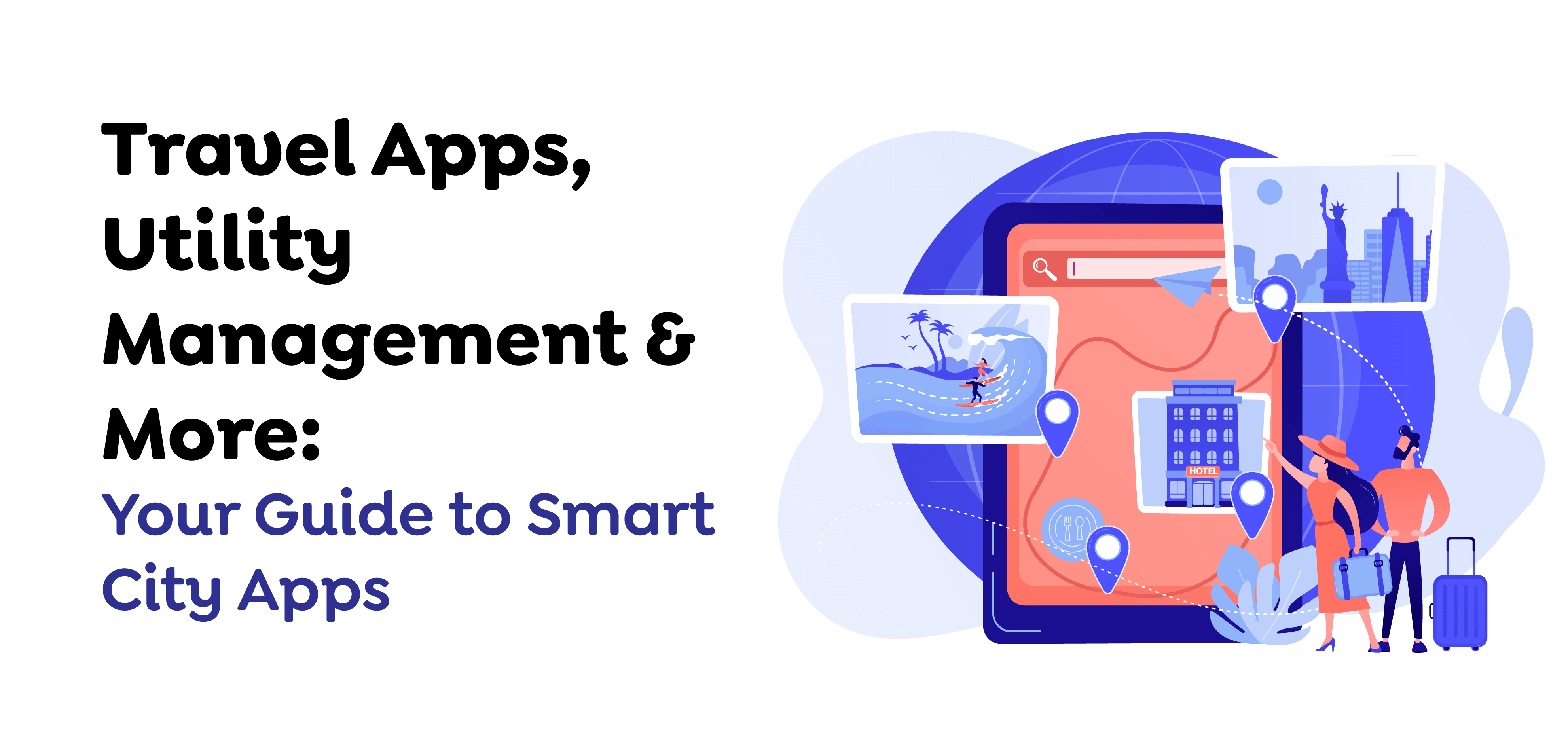
Types of Mobile Apps Powering Smart Cities
The world of smart city apps is vast and ever-evolving, but some key categories play essential roles:
- Citizen Engagement Apps: These do more than merely share information by being interactive polls, surveys, and forums, which can effectively facilitate two-way communication between citizens and city officials. Imagine voting city-wide for the new design of a park or submitting your ideas on how to improve traffic flow in the neighbourhood, all through an easy-to-use mobile app.
- On-Demand Service apps: Such apps will bind the citizen to a multitude of urban services with the added advantage of on-demand functionality. Picture the scene where you are going to work in a self-driven pod hailed through a very sleek app built by some highly resourceful on-demand app development company, or booking bulky waste pickup from your phone itself. These apps are set to make service access easier and empower residents to manage their interactions with the city efficiently.
- Travel and Tourism Apps: Smart cities accomplish not only the needs of their residents but also their visitors. In enriching the experience of such visitors, a travel app integrates features for city navigation, history information, and booking services for attractions and events. Imagine conducting a new city on one comprehensive app guiding you to its hidden gems, real-time translation of menus, and buying tickets for local tours at your fingertips.
Also Read – A Comprehensive Guide to Building a Live Sports Streaming App Like Sportsurge
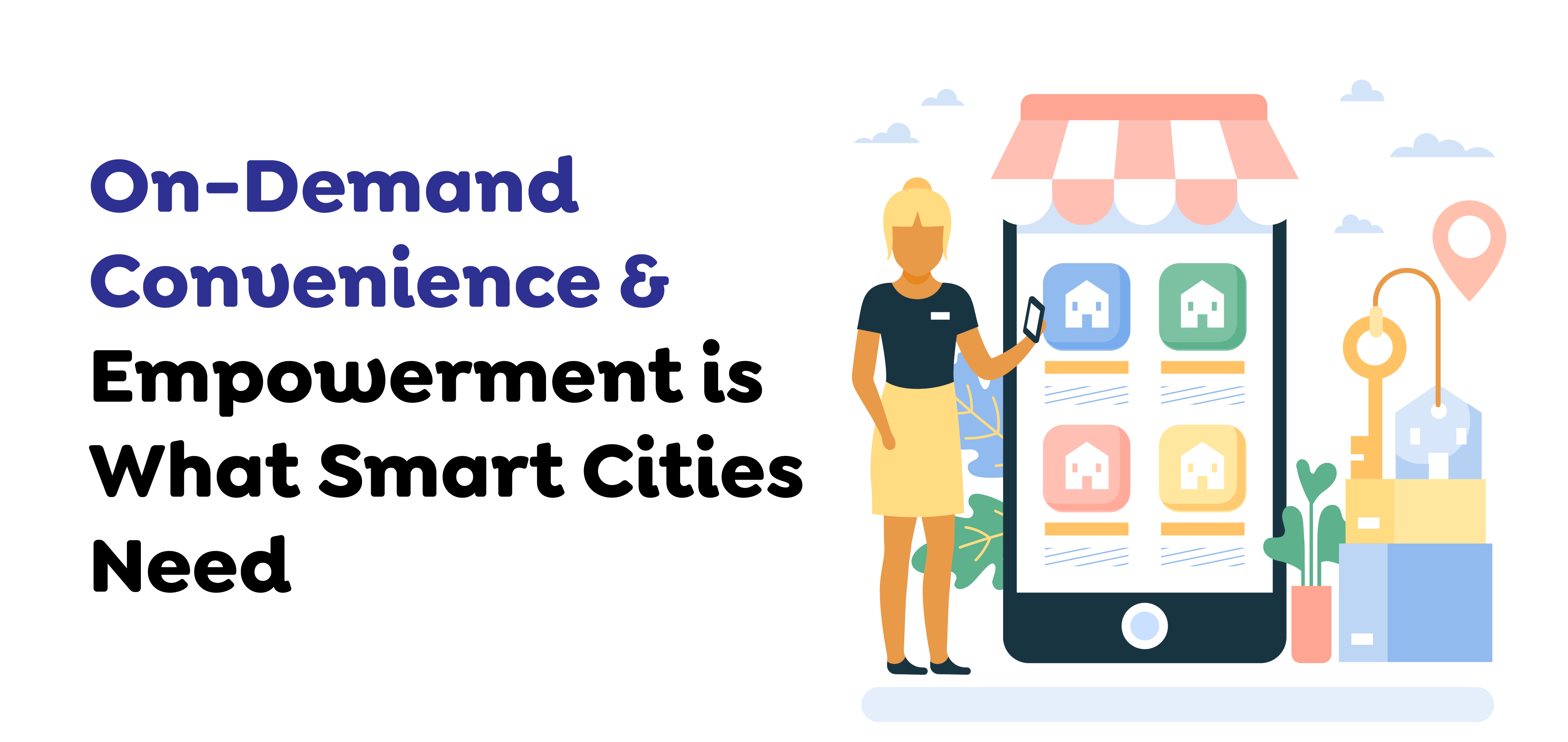
Benefits for Businesses to Empower Smart City Growth
Smart cities aren’t just about technology and infrastructure but creating vibrant ecosystems where businesses thrive. Here’s how:
Building Apps for Smart City Needs
According to Statista, the global mobile app market is projected to reach as high as $614.4 billion by 2026. Due to the high growth in using mobile apps, it will create an opportunity for enterprises to come up with solutions in a more innovative way to meet the requirements of smart cities. This high level of usage of mobile apps makes it a perfect time for any business to think of creativity, geared toward specifically smart cities.
- Picture a management software reshaping the logistics industry by using real-time traffic data from the city’s smart infrastructure to find the most optimal route for delivery. This would not only be beneficial to the company for its enhanced efficiency but will also help the city by reducing congestion and emissions.
- A local energy company could go for energy app development solutions through which residents track their consumption and, against this backdrop, are given tailor-made recommendations by which they can save energy. This would foster a culture of sustainability within the city while creating a useful customer engagement tool for the company itself.
- A mobile app can be developed for a retail chain through which customers can identify nearby stores, product availability, and even order products for pick-up in-store. With this, it will empower the mobile technology that heightens customer experience and drives sales within the smart city environment.
- A local restaurant can develop an app through which users can log on to view menus, book a table, or even order food delivery. A restaurant app development would not only serve the tech-savvy population of a smart city but also ease the way for the restaurant to reach out to customers.
- The smart city culture encourages convenience. On-demand app development has huge opportunities for developing cutting-edge delivery apps, ride-hailing, and hospitality management apps to efficiently and without hassle connect citizens to the services at their steps.
- It’s not only smart city residents that get catered to but also visitors. Travel and tourism app development presents new fascinating opportunities. Imagine location-based services guiding tourists through the likes of NEOM or even augmented reality city guides, which would project historical information and points of interest onto the real world. Besides, location-oriented travel recommendation apps can be tailored to the unique experiences each smart city has on offer.
- The other key integrations of technology into a smart city would be in education and healthcare. Mobile learning platforms can reconstruct the education sector for its residents. Telemedicine apps revolutionise the way people get access to better healthcare services. With the aid of telemedicine, patients can log in to doctors and have remote consultations and check-ups. Citizen health and wellness apps provide users with an overview of their health vitals, helping monitor and manage well-being.
Moreover, businesses can partner with:
- Government Agencies: Businesses can benefit from insights into specific challenges and opportunities by working with city authorities within a smart city project. It helps them come up with solutions based and focused on solving real challenges, not having to second-guess problems existing in reality.
- Technology Companies: Businesses can use cutting-edge technologies such as business intelligence created by tech companies specialised in areas like IoT or Data Analytics to further innovate and create an impact.
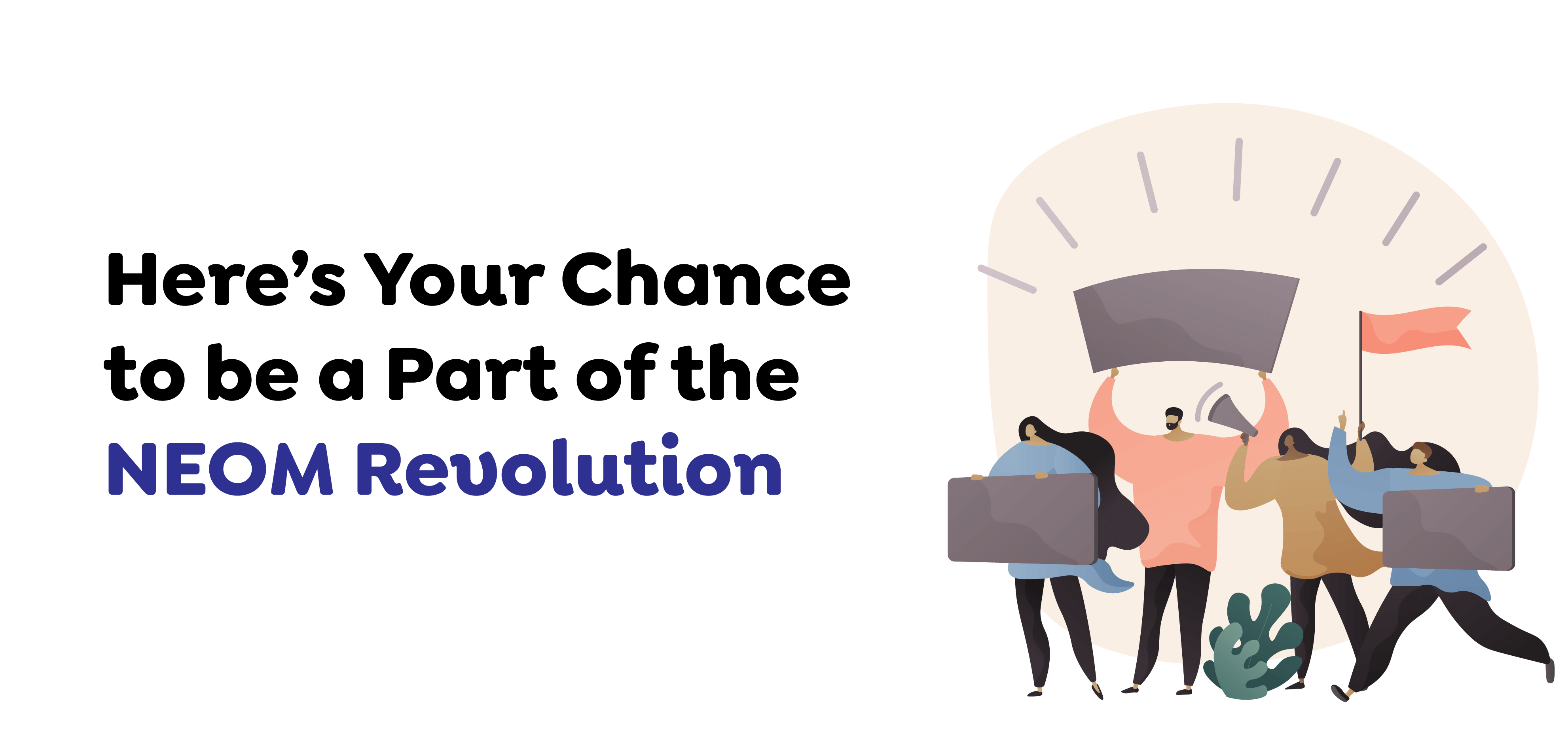
Developing Your Smart City App in Saudi Arabia
The smart city is a land of opportunity. If you have a great app idea that can contribute to Saudi Arabia’s smart city vision, the choice of the right mobile app development company will mean everything. Here are some hooks that go beyond the purely technical:
Expertise in Smart City and On-Demand Development
Most of the smart city initiatives of Saudi Arabia are driven by on-demand services and mobile technology integration. Look for a reputed mobile app development company in Saudi Arabia that has an established record of developing apps for similar projects. Their experience in that very domain will ensure that they fully realise the technical and integration challenges of such initiatives.
Consider a company that has experience in smart city technologies, particularly with IoT sensors, data analytics platforms, and API development hooking into city infrastructure. Many smart city apps link residents to dynamic services like transit, utilities, or waste management. Thus, experience in the development of on-demand apps is important.
Local Market Knowledge and Regulatory Landscape
An effective smart city app should be more than functional. It should also be vitally relevant to the culture of the society and relevant locally to regulations. Emphasise the need to select a development company familiar with the Saudi Arabian market, user base, and regulatory framework. In that way, you can be sure that your app caters to the specific needs and preferences of the local users.
For example, the UI and UX design should be prepared for the local language, in this case, Arabic. Furthermore, the app shall be developed to comply with data privacy regulations, for example, Saudi Arabia’s Personal Data Protection Law (PDPL). The companies dealing with development are aware of these regulations and thus will guide you on best practices for safety measures within your app, so it is designed while keeping the privacy of the users in mind.
Also Read – Drones to Monitor Roads at Holy Sites of Saudi Arabia | Seize the Moment with Drone App Development
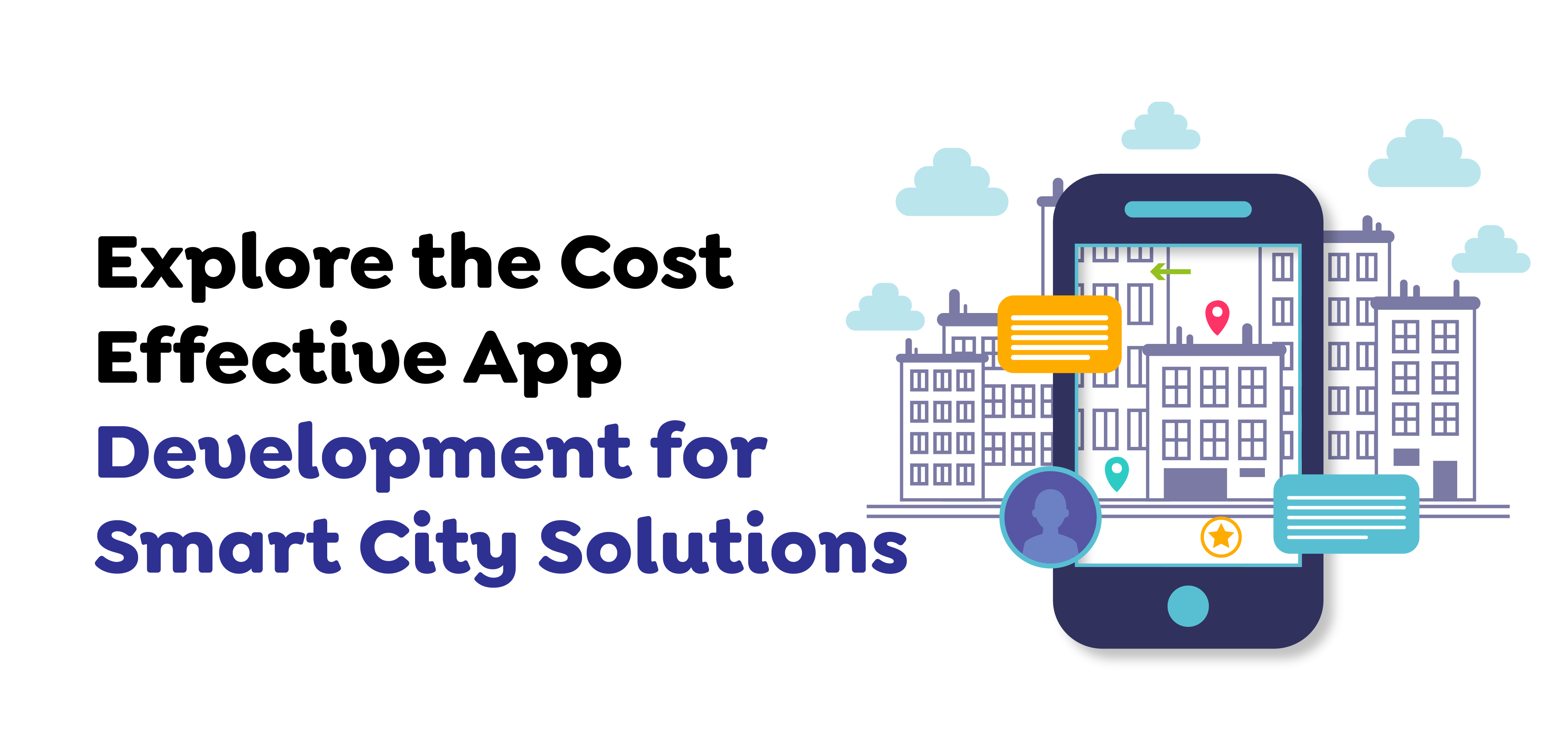
Cost-effectiveness, Development Timeline and Scalability
The smart city initiatives in Saudi Arabia have provided fertile ground for new innovative mobile apps. However, rushing into the development process may not be efficient without knowing what drives the cost. Here, we outline some of the key considerations influencing the cost to develop a mobile app in Saudi Arabia:
- App Complexity and Features: This is the biggest cost driver. A simple app with basic functionality will be much more reasonably priced compared to an app enriched with many features and including complex functionalities, like real-time data integration, AR and VR elements, or offline functionality. The development platform has a huge influence on the cost. There are two big choices for the development platform:
- Native Apps: Since they are developed for iOS or Android operating systems, they offer the best performance, user experience, and access to device-specific features. In turn, development for different native apps is costlier in terms of serving each platform.
- Hybrid Apps: Running on top of one codebase on multiple platforms, hybrid apps give a cost-effective solution. However, in terms of performance and some device functionalities, there might be limitations.
- Ongoing Maintenance and Updates: Development doesn’t end with the first launch. Hence, budgeting for its ongoing maintenance and updates is a must to ensure the cybersecurity, full working potential, and adaptation of the app to new technologies and the evolving demands of users.
Finding the Right Balance
The ideal case would be a balance among functionality, cost, and development expertise. A professional and well-known mobile app development company in Saudi Arabia will help balance these factors and come up with an affordable development plan tailored to your particular needs for an app. They’ll be able to advise on the best platform for your needs and suggest features that provide maximum value for users within a certain budget. Also, ensure your app is built to scale and seamlessly update in the future.
Also Read – Developing Your Own Self-Check-In Hotel Booking App: A Comprehensive Guide
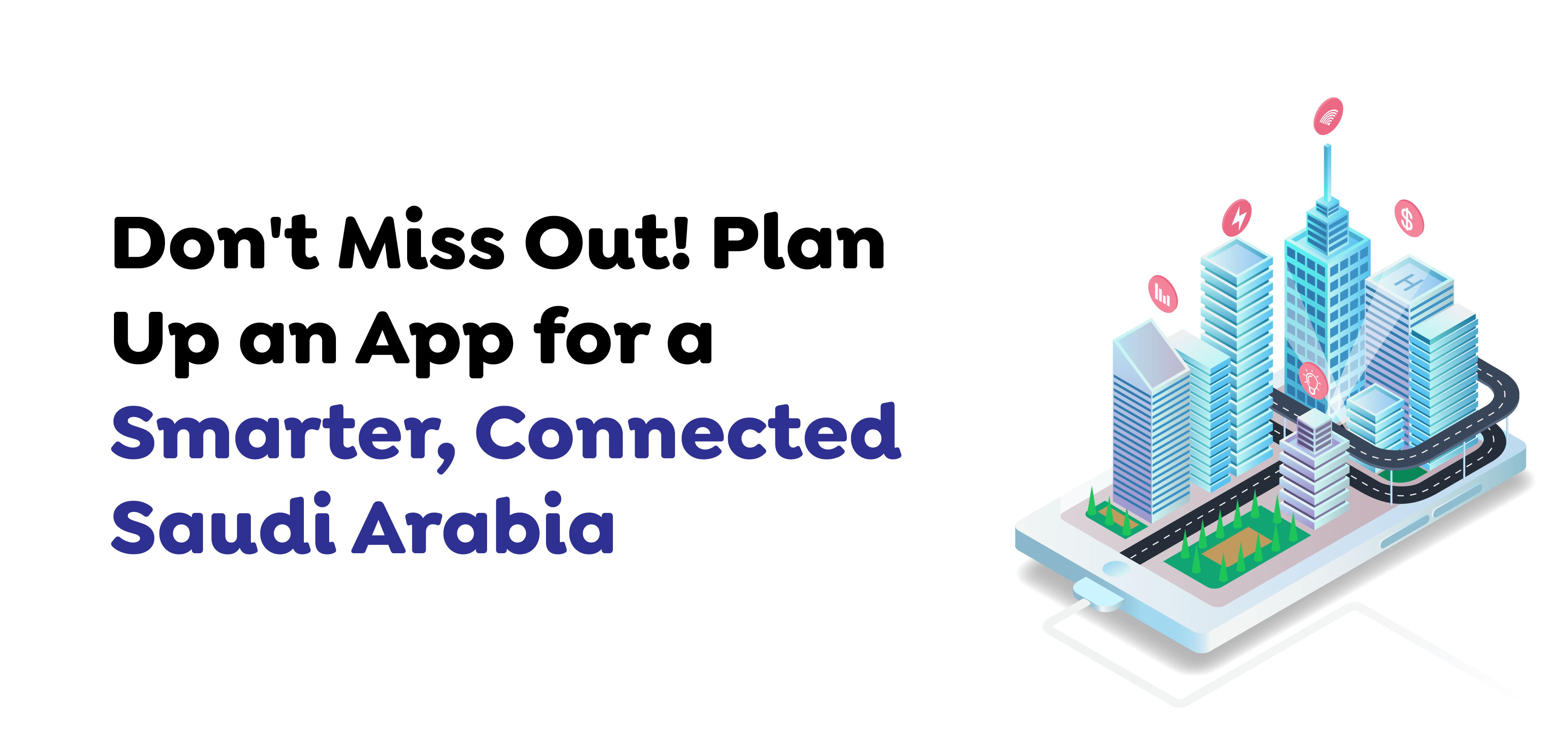
Building a Smarter Future, One App at a Time
The ambitious Saudi Arabian smart city vision relies on the power of technology in dealing with an urban future that is increasingly sustainable, efficient, and livable. Going forward, the mobile app will emerge as the main inalienable mediator between the citizens and this complex ‘back office of smart city services’. Mobile apps form the engines that drive progress from facilitating citizen engagement to streamlining service delivery. This will also bring huge opportunities for businesses in terms of contributing their expertise by pouring innovative apps in the way of smart city initiatives.
Is your business sitting on that million-dollar app idea, fitting the smart city vision of Saudi Arabia? Get in touch with a professional mobile app development company, Techugo. Techugo has an incredible track record of developing avant-garde mobile apps, which resonate in the Saudi Arabian market and ingeniously address the challenges and opportunities lying in the prospect of a smart city.
Get in touch with Techugo to discuss how to make your app play one small but pivotal role in the process of changing this urban landscape, to enable citizens to start afresh in the new era of living.
Post Views: 1,325

